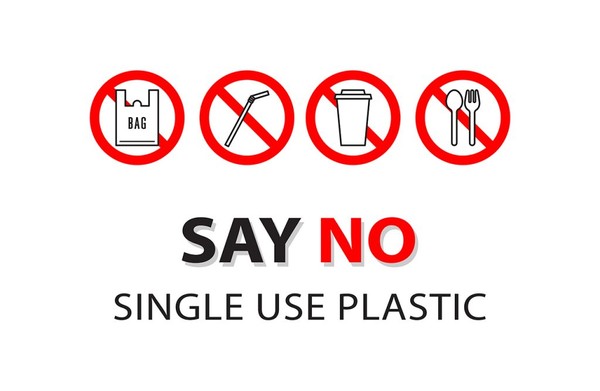The MOE originally aimed to reduce plastic disposable usage in a faster pace. But they had to take a step back, postponing the nonreturnable cup deposit system for three years due to the suffering industry's demand. Restrictions on the use of disposables are causing inconvenience to customers and the stores. And in that there is no suitable alternative to solving the environmental pollution problem of plastic disposables yet, regulation on single use products should not be maintained.

First, restriction on the use of single use products does not meet the convenience and expectation of customers. Many cafes are offering eco-friendly, biodegradable straws to reduce plastic usage. But paper straws, which are commonly used, are unfavorable among customers for their inconvenience of usage since they get wet and soggy when immersed in the drinks for a long In September 2020, according to the Ministry of Environment (MOE), 14 coffee shops that signed the disposable product reduction agreement with the ministry used 1.34 million disposable cups over the last five years. Wasted resources for producing such disposable goods day by day, hence environmental pollution is in a serious state. Therefore, it is necessary to maintain the ban on the use of disposable products to reduce plastic and carbon emissions, and to encourage the use of reusable cups. First, regulations on disposable products have a great effect on diminishing plastic usage. In June 2018, the MOE implemented disposable product regulations1) for cafés and fast-food establishments, and as a result, the number of disposable cups used in stores decreased by more than two-thirds. In addition, since the enforcement of the disposable product regulation, which took effect last November, the amount of plastic waste has declined by about 69kg on a province average per month. According to the United Nations Environment Program announcement in 2016, about 90% of the garbage that flows into the sea is plastic. Plastic waste extremely pollutes the marine ecosystem because it takes more 20 years to decompose. Since plastics pose a great threat to sea creatures and humans, they must be reduced through regulation. Second, reusable cups are more hygienic than disposable cups. Disposable cups are made by putting raw materials such as polyethylene and polystyrene into an injection molding machine, compression, and molding. By that, the disposables are exposed to various chemicals and dusts, and are unhygienic because most cafes do not sterilize disposable cups. In 2020, as a result of measuring the contamination level2) of time. The smell and taste of paper also hinder the flavor of the drink. Furthermore, in cases where in-store customers need to leave with their unfinished drinks, they might feel discomfort in having to transfer their drinks from reusable cups to plastic ones. Second, the regulation of disposable products interferes with the business of cafes. The money, time, and manpower for purchasing, managing, and cleaning reusable containers are quite a burden for the workers. According to a survey in 2018, of 1,000 cafe part-time workers conducted by Albamon (a part-time recruiting platform), 87% replied their work has become difficult after regulation on the use of disposable products in-stores. The reasons were "more work such as dishwashing" (53.6%) and "scuffles with in-store customers who demand single use cups" (33.6%). In terms of expense, even if the cafe owners try to replace plastic disposables with eco-friendly ones, paper straws which are the cheapest costs 35 ~ 45 won each, more than twice that of plastic straws. Third, substitutes for plastic disposables has not yet been proven to have much impact on environmental protection. For paper straws are coated with polyethylene (a type of plastic), or because used ones are already stained with drinks, they end up bagged as general waste to be incinerated or landfilled. Hence the advantage of paper straws that they can be recycled or composted is pointless. In fact, the basis for the legal proposal of disapproving disposable products only evaluated the environmental load of production, failing to notice the ‘disposal process’ such as incineration, landfill, or recycling. In the absence of a fully validated alternative to achieve the purpose of environmental protection, simply regulating the use of plastic disposable products was too hasty.
Of course, the government's purpose of environmental protection itself is good. But the simple restriction of disposable product use is not the best way to achieve it. The government regulation is imputing the inconvenience and burden on the consumers and cafe workers, despite of the lack of proper alternatives. Therefore, restrictions on the use of plastic disposables in cafes should be lifted.

